Nikola Jokić's brother: Strahinja Jokić's life and facts
NBA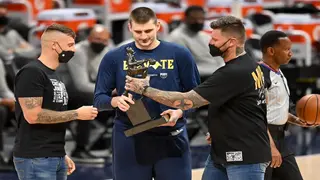
Zlatko Dalić is a former defensive midfielder for some of the biggest clubs in the Croatian top-flight league. The Croatian superstar resorted to football management after his retirement from playing the game. He has been privileged to manage some top clubs, including Al-Hilal. He is the current Croatian National football team manager.
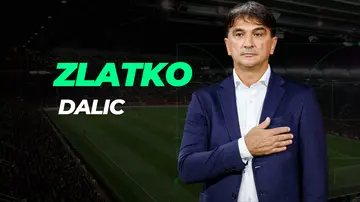
The Croatian football legend became popular after managing his national team upto the final of the Russian World Cup in 2018. He led Croatian to the final but unfortunately lost to a very exciting French squad. The Croatian team will look to dominate in the 2022 World Cup.
Manager name | Zlatko Dalić |
Age | 56 (2022) |
Birthdate | 26 October 1966 |
Birthplace | Livno, SR Bosnia and Herzegovina |
Height | 1.79 meters |
Former playing position | Defensive midfielder |
Spouse | Davorka Propadalo |
Zodiac sign | Capricorn |
Current team | Croatia (Manager) |
Retirement year | 2000 |
Salary | $1.66 million |
Net worth | $5 million |
Teams played for | Varteks, Hajduk Split, Velez Mostar |
Social media |
Nikola Jokić's brother: Strahinja Jokić's life and facts
NBA
The Croatian citizen and football management maestro is 56 years old (as of November 2022). He is one of the most senior managers in the 2022 Qatar World Cup. He made his professional playing debut in 1983 and started management in 2005.
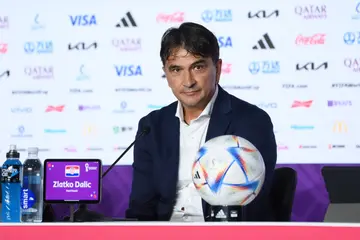
The talented coach comes from a Bosnian Croat family of a mother, Kata, and a father, Ivan. He holds Croatian citizenship. He has spent most of his life in Croatia after acquiring citizenship since most of his career has been around the country.
Dalić retired from playing in 2000, at which point he joined Varteks as an assistant coach. Dali served as the club's sports director from May 2002 to May 2005 while also serving as Miroslav Blaevi's associate coach in the 2003-04 and 2004-05 seasons.
The Croatian was named Varteks' manager in May 2005, and in his first campaign, the team finished third in the Croatian First League and advanced to the Croatian Cup final. Varteks fell to HNK Rijeka 0-4 in the first leg of the final, which was held in Rijeka. Dali almost made a splash in the second leg in Varadin, propelling the team to a 5-1 victory, but they fell one goal short of winning the trophy.
Miralem Pjanic: wife, salary, contract, Instagram, religion, net worth
Football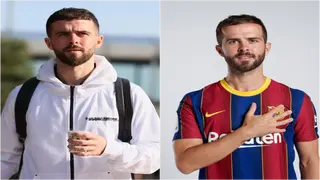
The prolific coach took over as manager of Rijeka in the summer of 2007 after his contract with Varteks expired, and the team finished fourth at the end of the 2007–08 campaign. Dali was fired on July 1, 2008, just before the start of the season, after his team lost to FK Renova in the 2008 UEFA Intertoto Cup semifinals.
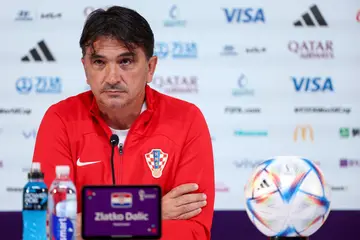
He signed a contract to manage Al-B Hilal's team on May 3, 2012, for the Saudi Arabian club. Antoine Kombouaré was fired on January 30, and Al-Hilal and Zlatko decided that Al-Hilal would take over as head coach of the first team. He made his managerial debut in the Saudi Crown Prince Cup semifinal between Al-Hilal and his former squad Al-Faisaly on February 9, 2013. These are some of the teams coached by Zlatko Dalic.
The Croatian Football Federation appointed the legend as the head coach of the Croatia national football team on October 7, 2017, after Ante ai had been fired for a string of unsuccessful matches. Upon his arrival, Dalić made the following announcement: If Croatia makes it to the 2018 FIFA World Cup, he will only continue as head coach; if not, the HNS will decide.
Kaka's net worth, achievements, house, cars, religion, what is he doing now?
Football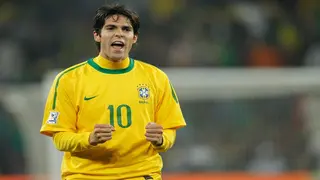
Croatia defeated Iceland 2-1 to finish first in their World Cup group, earning all possible points. Croatia then faced Denmark in the round of 16, winning on penalties to advance. Croatia triumphed once more on penalties in the quarterfinal match against the hosts Russia, advancing them to face England in the semifinals.
The Checkered Ones defeated England 2-1 on July 11 to advance to the final game, whereas France defeated them 4-2 on July 15. He was given the Franjo Buar State Award for Sports Yearly Award in recognition of his accomplishment.
The manager wed Davorka Dalić Propadalo, whom he had met at a Livno high school in 1992. Toni and Bruno are their two sons, who they share.
Zlatko is ranked 23rd among the highest-paid football managers in international football. Per his contract, he earns a whopping $1.66 million per year as a manager of the Checkered Ones.
Who is Xavi Hernandez? All the details and facts on one of the greatest midfielders ever
Football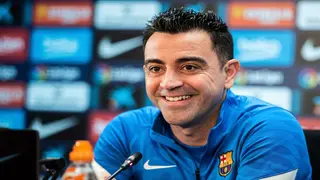
The prolific football manager is estimated to be worth $5 million. This amount calculates the value of assets he owns and the average payments he has received throughout his career in salary and endorsement deals. He is one of the wealthiest coaches in Europe.
The post has proven that Zlatko Dalić's retirement age proved to be timely since he became one of the best coaches in world football and influenced the football scene massively, which is very rare. He has established himself among the most influential managers in World Cup history.
READ ALSO: Who is Graham Arnold, the Australian head coach heading into this World Cup?
Sportsbrief has recently posted about Graham Arnold. Born in Sydney, Australia, Graham Arnold is one of the 32 coaches who will lead their teams in the 2022 World Cup in Qatar.
He was also part of the Australian coaching staff in the 2006 and 2010 editions of the tournament. Graham steered the Socceroos to victories over UAE and Peru to secure a slot in the global event. His main task now is leading the nation to success in Qatar.